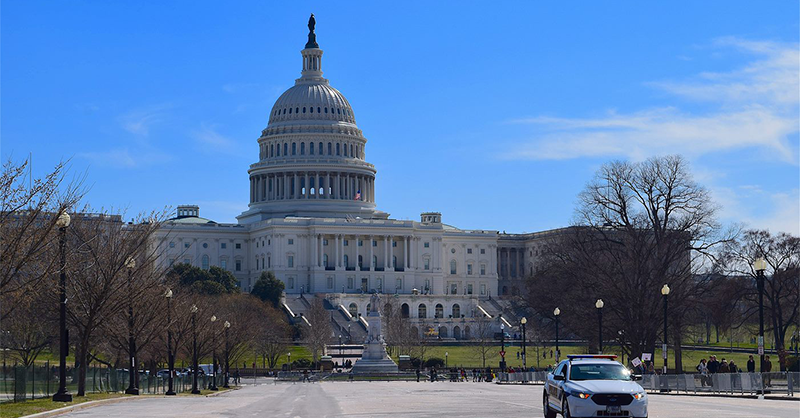Biden’s bid to boost competition could reap political benefits
26 July 2021 00:00 by Claude Marx

It mostly comes down to a five-letter word.
President Joe Biden’s moves to ramp up antitrust enforcement could impact how companies do business and what people pay for goods and services. But they could also help Biden and his partisan allies get something even more valuable: votes.
Biden has long made his political brand that of a pragmatic champion of the middle class. It’s a group that the Democrats have sometimes struggled to win over in recent years.
While the average voter might think the Sherman Act deals with tanks, the administration is gambling that if its actions free up markets that help lower prices and create job opportunities, people will credit the Democrats.
The executive order on competition outlines the administration’s priorities. Among the contents are provisions strongly encouraging the Federal Trade Commission to promote competition in the labor and repair markets and to be more rigorous in reviewing corporate mergers.
And polling data indicates there’s an opportunity for Biden and his party.
A recent Gallup Poll found that 73 percent of respondents were somewhat or very dissatisfied about the “size and influence of major corporations.” Last year, the poll found 58 percent of respondents had those beliefs.
But the public is less certain about remedies.
A June Morning Consult poll for Chamber of Progress, a Democratic-leaning pro technology organization, found that 53 percent of 2,000 registered voters supported more regulation of large tech firms. But the number dropped to 39 percent when people were informed that some of the changes might result in fewer offerings to consumers.
When people were told that a series of antitrust bills approved by the House Judiciary Committee last month would ban free shipping by Amazon Prime, 59 percent were more likely to oppose the bills, which are awaiting action by the full House.
University of Virginia political scientist Larry Sabato told FTCWatch that most policy issues don’t by themselves influence election outcomes but are part of an overall image that voters have.
“They contribute to how people feel about parties and individuals. And that’s important in these very partisan times. So it reinforces the Democrats’ image as skeptical of Big Tech. It won’t have a great effect on the 2022 election, but the impact isn’t non-existent either,” he said.
Paul Swanson, an antitrust partner at Holland & Hart, thinks the effectiveness of the initiatives by the administration will depend on messaging.
“The issues of competition and antitrust are abstract, and the administration is wise to issue a list of how people are affected,” he said. “But it will be really hard to make it resonate with people. Even though people think tech is too big, they love their iPhone, they love Facebook. However, there are many areas where the average American feels the pinch, and if the administration can say ‘if companies get too big, it locks you in and limits choices and raises prices,’ that could work with some voters.”
Swanson has experience on the policy and political side of technology issues. Before he was an antitrust lawyer, he was an aide to two former Democratic US House members.
Republicans aren’t letting the administration’s efforts go unanswered. There are GOP cosponsors of the antitrust bills working their way through the House, though the party’s leadership has been leery and expects to offer its own plans.
Representative Ken Buck of Colorado, the GOP’s top member of the House Judiciary Antitrust Subcommittee, and four other lawmakers have formed the Freedom from Big Tech Caucus.
“Big Tech has abused its market power for decades, and Congress must act to hold these companies accountable and preserve the free market, promote competition and innovation, protect the freedom of speech, and foster a thriving digital economy,” Buck said in a statement.
The debate over antitrust and Big Tech will be part of the monumental battle that both parties will wage for control of Congress in next year’s elections. The Senate is currently split 50-50 with Vice President Kamala Harris breaking the tie to give Democrats the majority. The House has 220 Democrats, 211 Republicans and four vacancies.
The GOP has several advantages. Population shifts will result in more House seats in Republican-leaning states and fewer seats in Democratic strongholds. Republicans will also control the redistricting process in more states. But on the Senate side, the Republicans are defending 20 seats while the Democrats have 14 seats.
The president’s party almost always loses seats in at least one congressional chamber during the first midterm election of his term.
In 2018, two years into the term of President Donald Trump, the Democrats gained 41 seats in the House and recaptured the majority while the Republicans gained two seats in the Senate.
In 2010, two years into the first term of President Barack Obama, the Republicans took 63 seats in the House and regained control of the chamber. The GOP won six seats in the Senate.
When the Democrats made gains in the House in 2018, they did it after unveiling an economic agenda that included calls for a tougher approach to antitrust enforcement. They called it “A Better Deal,” a derivation of the famous economic policy of President Franklin Roosevelt, the New Deal.
Among its proposals was one to establish “new merger standards that require a broader, longer-term view and strong presumptions that market concentration can result in anticompetitive conduct.”
One of the authors of the proposal was Senator Charles Schumer’s top counsel, Rebecca Kelly Slaughter, now a member of the FTC and until last month its acting chair.
Related Articles
No results found
